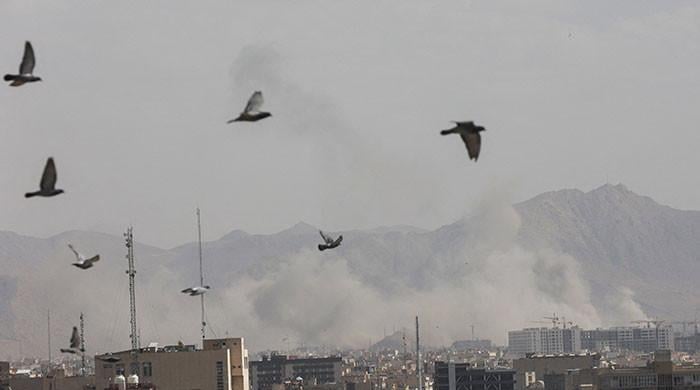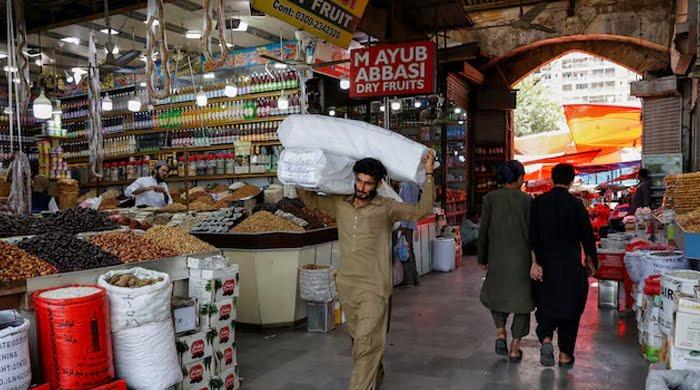Equality for all?
The PTI promises in its manifesto to guarantee religious minorities equal access to justice, as well as protection from violence and discrimination – in both law and policy
September 08, 2018
“All Pakistanis are equal in the eyes of the law and have equal rights in Pakistan.” Prime Minister Imran Khan’s reference to the rights of religious minorities in his inaugural address — even though it was made in passing — has symbolic importance given the environment of insecurity and marginalisation in which religious minorities live in Pakistan.
However, particularly given the PTI’s use of anti-minority sentiment in their election campaign — including by misrepresenting amendments to the Elections Act 2017 to make them a Khatm-e-Nabuwwat issue, and questionable ministerial appointments including that of Punjab Minister for Information and Culture Fayaz-ul-Hasan Chohan — what is needed now is more than symbolism to demonstrate that the new government is truly committed to representing all Pakistanis, regardless of their religion.
The persecution of religious minority communities in recent years — as illustrated by the attacks on an Ahmadi “place of worship” in Faisalabad last week by a mob, reportedly in response to a “private dispute” — has increased in recent years.
The events in Faisalabad come nearly four years after the previous government adopted a comprehensive National Action Plan (NAP) to combat terrorism and extremism in the country following the attack on the Army Public School in Peshawar in December 2014. As part of the NAP, the government pledged to take “strict action against the literature, newspapers and magazines promoting hatred, decapitation, extremism, sectarianism and intolerance” and to ensure the “protection of minorities”.
In June 2014, a few months before the NAP was adopted, the Supreme Court of Pakistan in a judgment also highlighted the state’s failure to protect religious minority communities and their places of worship from violence. The court found a “lack of awareness about minority rights” among law enforcement agencies and had observed that attacks against religious minorities could be attributed to the failure by the state to take adequate preventive measures. The Court directed the government to carry out a number of corrective responses, including: ensuring that school curricula promote “a culture of social and religious tolerance”; constituting a national council for the protection of minorities to frame policy recommendations for safeguarding and protecting rights of religious minorities; constituting a special police force to protect places of worship of religious minorities; and ensuring that action, including registration of criminal cases, is promptly taken to bring perpetrators who abuse the rights of religious minorities to justice.
However, the Supreme Court’s directions and provisions of the NAP still remain largely unimplemented.
The current predicament of religious minorities in Pakistan has roots in the state’s use of political Islam for its purported “national security” and foreign policy interests coupled with an “Islamisation” drive premised on crafting a dominant narrative with non-Muslim Pakistanis as “the other”. Reversing this trend will require rethinking the relationship of the state with its non-Muslim residents and the role of Islam in governing public lives, areas that remain contentious, and even hazardous, to engage in politically.
In the short-term, however, the new government can take concrete measures, including implementing directions of the Supreme Court and under the NAP, to address the widespread and systematic persecution faced by non-Muslims and minority sects within Islam in the country.
One key corrective measure is the substantial amendment of laws on “offences related to religion” in Pakistan Penal Code, which include a variety of crimes including misusing religious epithets and deliberately outraging religious sentiment, amongst others. Sentences for these offences range from fines to long terms of imprisonment, and in some cases a mandatory death sentence.
On a number of occasions, courts in Pakistan have highlighted that these laws are grossly misused. The Supreme Court, for example, in a 2015 judgment acknowledged that people accused of blasphemy “suffer beyond proportion or repair” and clarified that critiquing or amending the blasphemy laws does not itself amount to blasphemy.
The operation of blasphemy laws continues to have a detrimental impact on pluralism in the country and feeds into the atmosphere of insecurity and religious intolerance. This is acutely felt by non-Muslims and Ahmadis, who are particularly vulnerable to be targeted using these provisions. According to data compiled by the National Commission on Justice and Peace, at least 633 Muslims, 494 Ahmadis, 187 Christians and 21 Hindus have been accused under various provisions on offences related to religion since 1987 (as of 2014). As is evident from the figures, “blasphemy laws” disproportionately affect religious minority communities, who constitute only three per cent of Pakistan’s population.
In addition to individuals prosecuted for blasphemy, dozens of people accused of blasphemy, their families, their neighbourhoods and places of worship have been targeted by mobs and organised extremist religious groups, particularly where the individual belongs to a religious minority community, and as many as 56 people have been unlawfully killed in relation to blasphemy allegations.
In their current form, Pakistan’s blasphemy laws fly in the face of human rights guarantees, including the rights to freedom of religion and belief; freedom of expression; and equal protection of the law. In addition, as documented in detail by the International Commission of Jurists in a 2015 report, blasphemy laws serve as tools for people to settle personal vendettas and achieve political purposes, misuse of the law that is facilitated by the vague language in which offences related to religion are framed and the absence of intention in the wording of the blasphemy provisions.
Moreover, threats of violence — which are often realised — coupled with a bias against individuals accused of blasphemy displayed by various actors in the criminal justice system, including the police, lawyers and most significantly, judges, contribute to making blasphemy trials fundamentally unfair, denying blasphemy accused any real chance at defending themselves.
Yet, the state continues to turn a blind eye to these gross injustices, which are directly attributable to the current legal regime.
The PTI promises in its manifesto to guarantee religious minorities equal access to justice, as well as protection from violence and discrimination – in both law and policy. As the new government develops its 100-day action plan, one hopes the rights of religious minorities will get the attention they deserve.
Omer is a legal adviser for the International Commission of Jurists. She tweets at [email protected]
Note: The views expressed are those of the author, and do not necessarily reflect the official policy or position of Geo News or the Jang Group.











